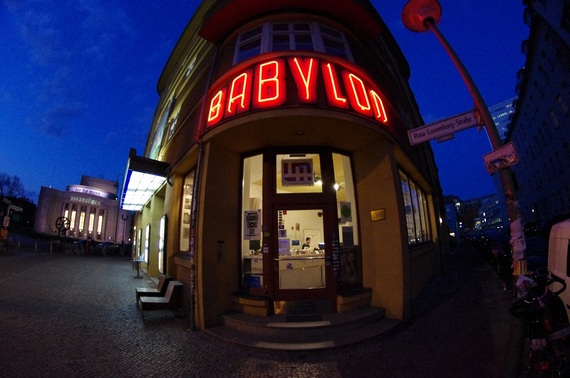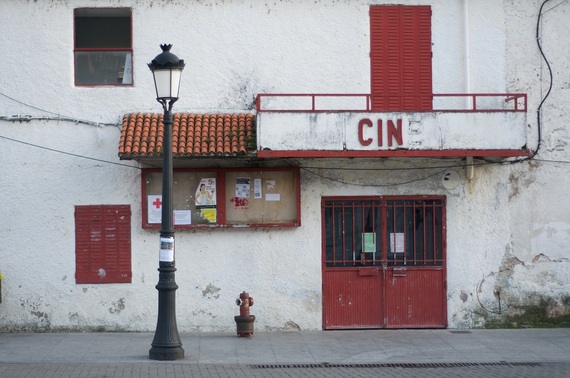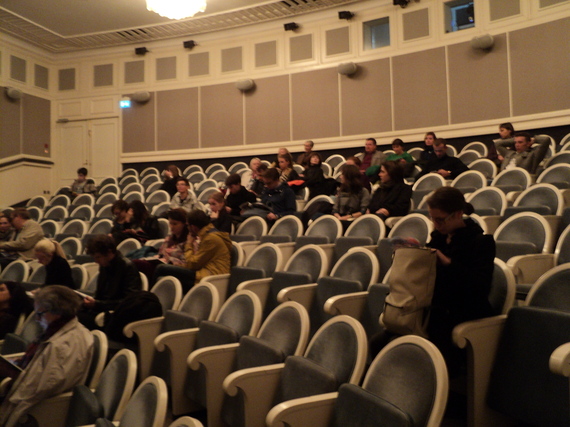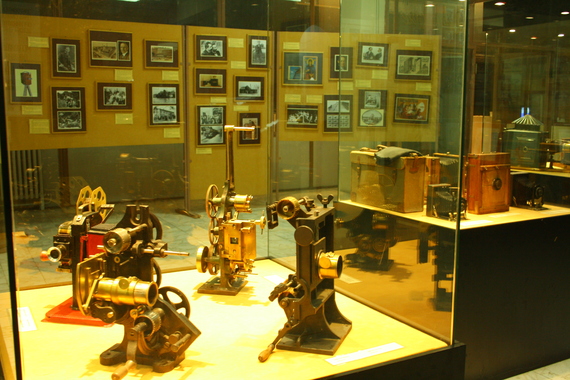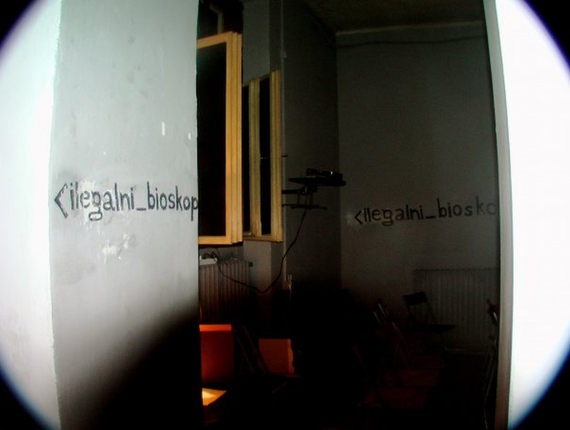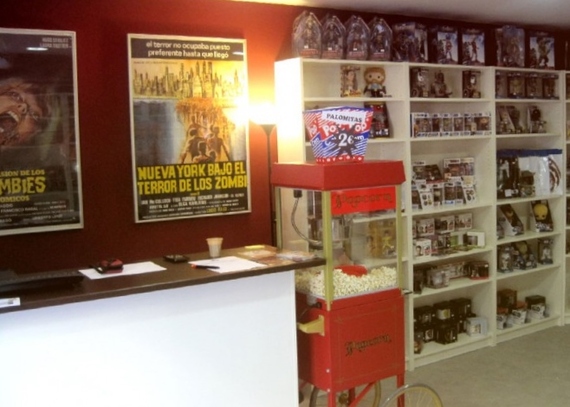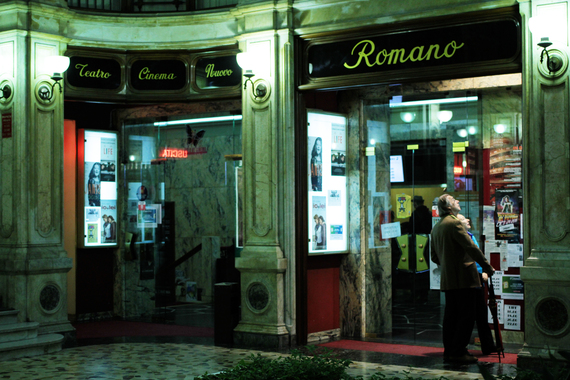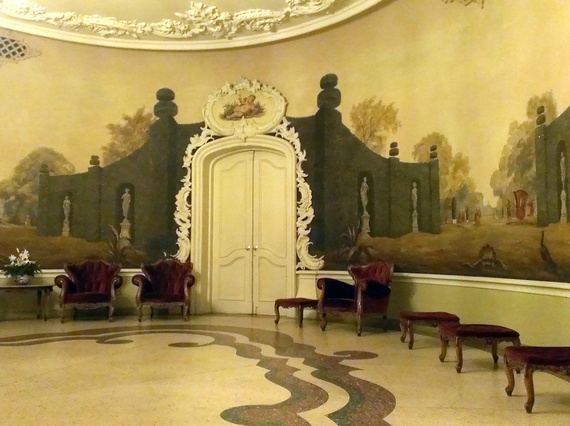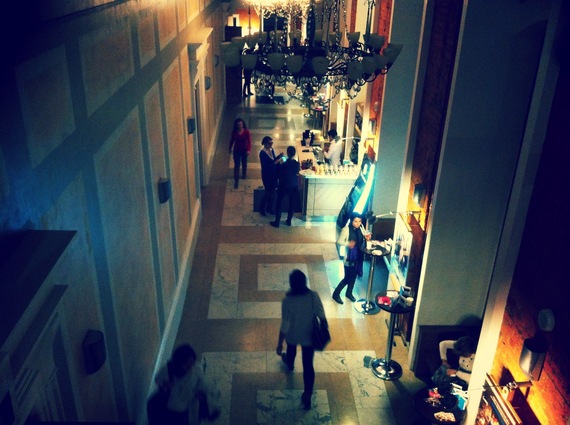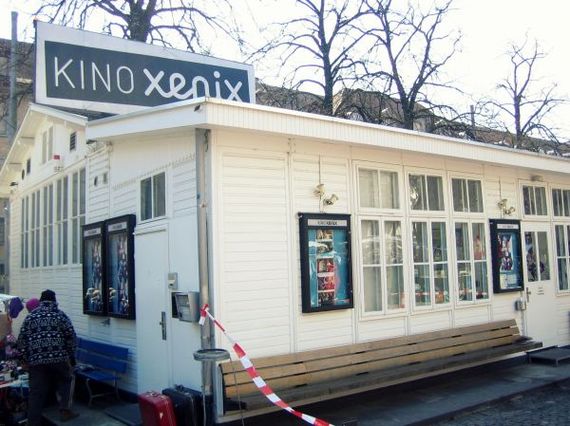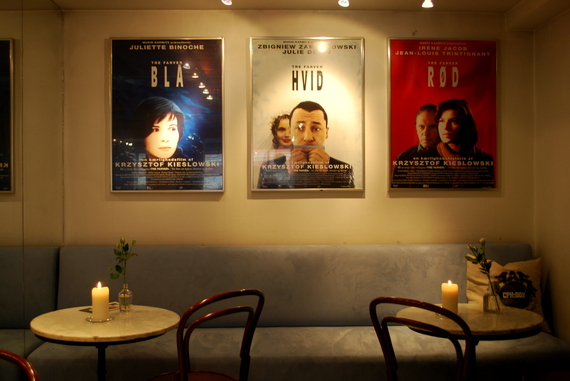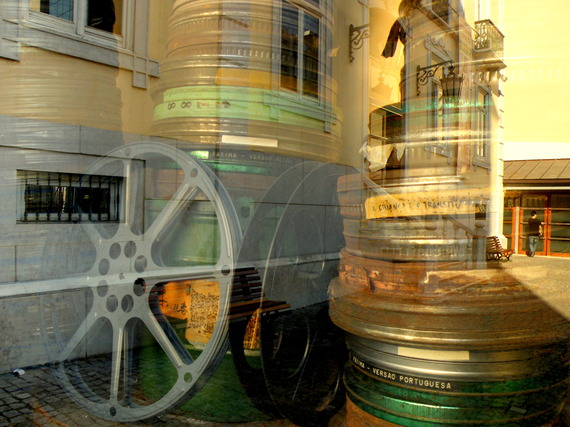Spring is at the door, but unfortunately for most of us Europeans, the weather often does not allow for outdoor fun yet. When the wind howls like a hammer, or it is raining cats and dogs, soon or later most of us chose to spend their evening at a cinema - a pleasant alternative to weekday nights made of randomly picked, bad quality films on streaming.
Nevertheless, there are moments when the latest releases are just not what we are after - yes, sometimes we might feel too hipster for that. Or probably we can't be bothered to drive all the way to that humongous multi-screen cinema city with bars-pubs-clubs-restaurants on the city outskirts. Then, independent, repertory cinemas is the option you are looking for.
Some of them specialise in older, notable films that have become milestones in the history of cinema; others gather an audience keen on discovering contemporary avant-garde's ultimate ruses of defying cinematic conventions. There are tiny and decadent, and majestic and palatial ones - but most of them are worth-visiting for the charm they retain. Throughout the last decades some had to shut their blinds or, amid citizens' and activists' protests, were tore down to make space for new developments. Luckily, many are still open and active, and often offer a rich cultural programme that goes beyond mere film screening.
So, no blockbuster tonight? Here's a list, in random order, of 10 among the most interesting and worth-visiting art house cinemas in Europe.
In one of Angleterre Hotel's ground-floor meeting rooms is hosted this 200-seat cinema lounge, often used as a venue for some film festivals too. Before entering the cinema itself, you will have to pass through the luxurious hotel lounge, and buy the tickets at the check-in desk - yes, you will have to queue with the hotel guests and it might take a bit, so be sure you get there in time. Small curiosity: the original hotel building was demolished in 1987; the hotel reopened on-site in 1991, in a modern building whose facade mimics the former one. A pity, considering that Angleterre Hotel had been standing there for more than a century. The new building retains an antique-ish twist, and with it the cinema too - but don't you worry: picture and sound quality are up to 21st century standards.
Founded in 1974, the country's national cinema institute hosts a 120-seat cinema that screens both national and international films in their original language. Almost every month the rich programme of the cinema dedicates a week to the cinematography of a specif country, offering a fine selection of its best new and old films. But most important of all, the Cinematheque keeps playing a paramount role in defending and reclaiming the Macedonian cultural heritage - a tendency that has become even stronger after the country gained independence in 1991.
In the last years many cinemas in Belgrade couldn't just stand the competition with the new, bigger and more modern ones opened in the city malls. As a result, most of them closed. This void has been somehow compensated by an alternative and bustling independent cinema scene that started to rise in opposition to the more mainstream one. Every Sunday the small cultural centre "Magacin" (Warehouse) hosts the screening of what is called "Illegal Cinema". With no more than 30 seats, the place is the tiniest one of the list, and one of the few venues in town where forbidden, underground and, more in general, marginalised films can be watched. As a plus, the entrance is free. Another plus: anyone can suggest a film for the screening - as long as they are keen on starting a discussion once the film is over.
It's written in the website already: Artistic Metropol - a different kind of cinema. This cinema opened only three years ago, and it is specialised in horror, cult and B-movies. Not only Artistic Metropol is the only independent cinema in Madrid showing the aforementioned type of films: indeed, it also works as a window for any independent film maker seeking to officially release their last projects. In addition to that, Artistic Metropol is a well-known shop among the city's cinema aficionados - searching for a DVD of a quirky film, or an out-of-stock cinema book? Now you know where to go.
Nuovo Cinema Romano's programme is a sophisticated one: you won't find crazy experimental or uber alternative films on its screen, but rather a selection of the ones that participated in the major niche film festivals. Beside that, this cinema stands out for its beautiful location. Nuovo Cinema Romano is hosted in the Galleria Subalpina, one of the three elegant shopping arcades built in 19th century in Turin. Inspired by the Parisian passages , the gallery - whose eclectic decoration fuses together elements of the Renaissance and Baroque style - has been itself the set of some Italian films, such as Four Flies on Grey Velvet (1971) and The Italian Job (1969 version).
Inaugurated in 1923, Splendid Palace deserves 100 per cent its name: the building itself is a piece of art, outside but especially inside. The interior is richly decorated in a neo-Rococo manner, and its Large Hall boasts impressive ceiling paintings that you'll hardly see in any other cinema you've visited - no wonder that the building has been declared a national monument. Needless to say, their programme is as fine as its architecture - Splendid Palace is one of the few cinemas in the Latvian capital that show documentaries, and sometimes also some concerts and theatre plays. Can we possibly find a flow in this apparently perfect venue? Yes: no popcorn is sold - some class, if you please?
Like Splendid Palace, Pioner is a real beauty: when you walk in you'll be welcomed by elegant crystal chandeliers and polished marble floors. Also, like Splendid Palace, it is a member of CICAE (the International Confederation of Art Cinema). And - alas! - like Splendid Palace. Pioner serves no popcorn. Reopened in 2009 after a major refurbishment that brought it back to its former glory, Pioner is one of the most relevant and well-established cinematographic institution of Moscow (many Russian film festivals take place in here: Moscow Film Festival and 2-in-1 among the others). Inside the building you'll find a cosy restaurant (Pion) and a bookshop (Omnibus), too. Ah, and from May till October Pioner goes open air in Gorky Park - someone here knows how to spoil their customers!
Xenix's story is a fascinating one. Back in 1904, as a response to the increasing demand for additional space, the School Department of Zurich built a number of wooden pavilions around the city. Some decades later, in the 80s, when social and political unrest kicked off in the city, a group of cinema lovers with progressive ideas decided to establish an independent cinema in line with their principles. The cinema had to move location several times, up until the crew landed in one of those pavilions - where Xerix still is. Carefully refurbished in 2007, Xerix also has a bar where you can chill and have a drink while you're waiting to watch one of its groundbreaking movies - just a truly enjoyable venue.
Established in 1913, Grand Theatre is among the oldest cinemas of the Danish Capital. Throughout the years it has constantly expanded, and now it has six auditoria, the biggest one counting just over 300 seats. Its repertoire consists mainly of quality European films (that have generally always made it to Cannes Film Festival). Grand Theatre is a well-established cultural institution, and in 2006 received the award for Europe's best cinema at the Europa Cinemas Awards.
Hosted in an eclectic 19th century building, Cinemateca Portuguesa was born in 1948. The institution hosts the Museum of Cinema, the archives, a library, a bookshop and a restaurant-bar with an open air terrace. As for its Macedonian counterpart, Cinemateca Portuguesa was created out of the need of preserving the seventh art, with a particular focus on the Portuguese cinema.
